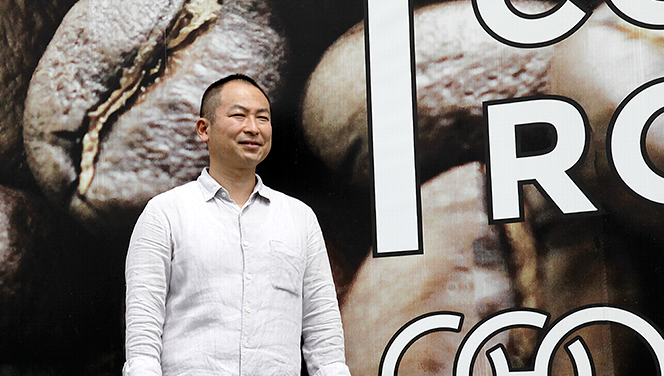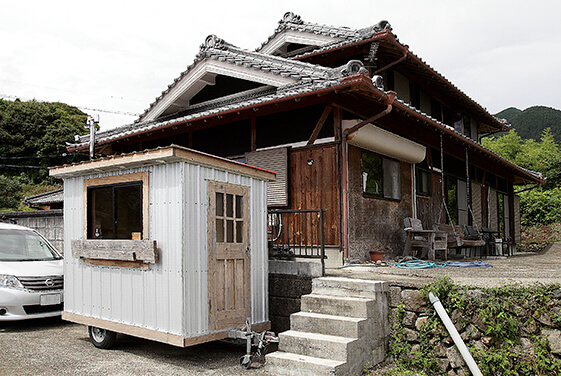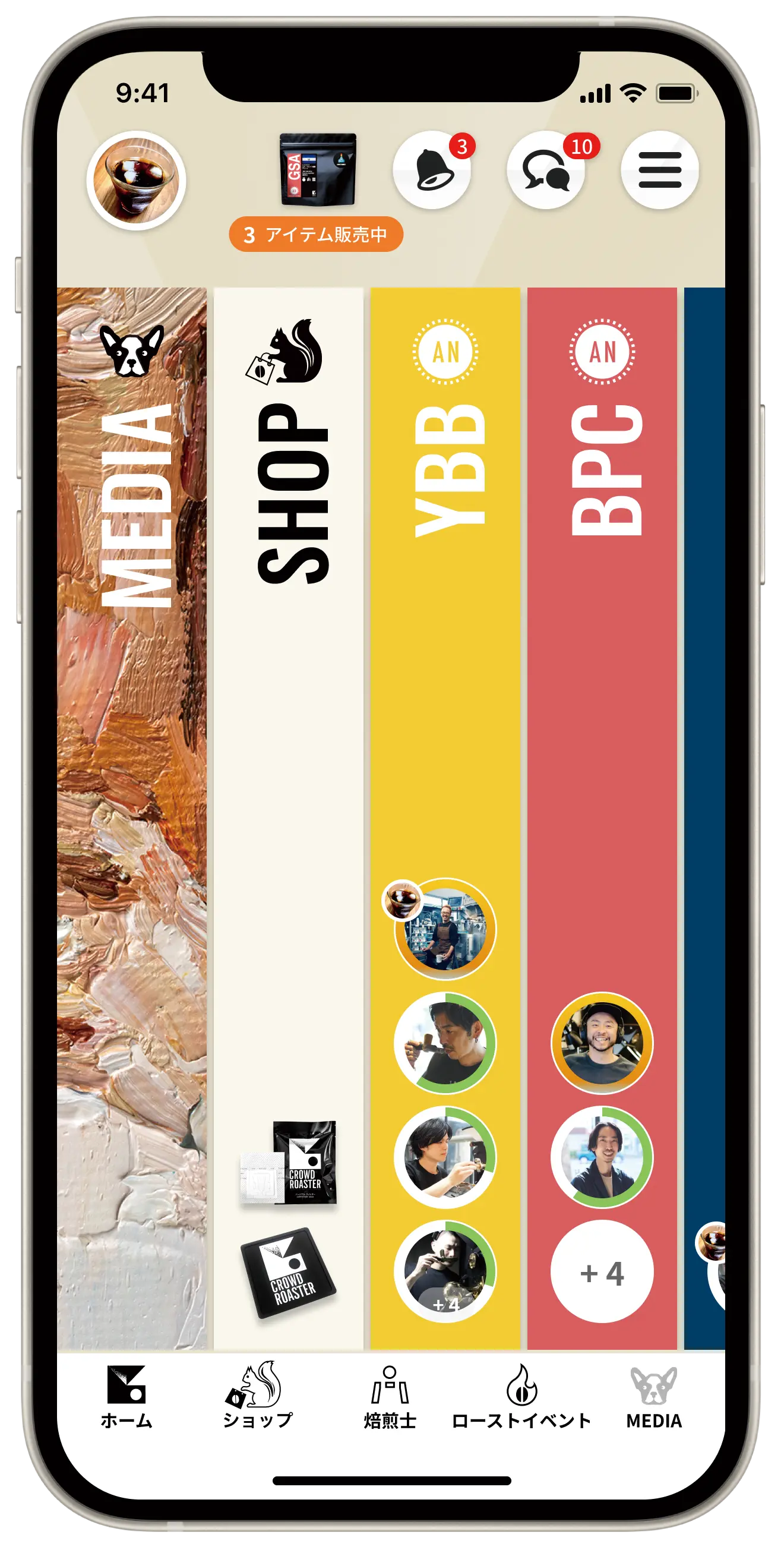"I don't call myself a 'roaster' because coffee roasting is not a job that requires a national license like a lawyer or a tax accountant."
With a gentle smile, Masakuni Sakata of KOTO COFFEE ROASTERS began by saying, "The word that Sakata uses to describe himself is 'roaster' or 'roaster'. He says that the words of his cupping teacher, Mr. Taniguchi of the specialty coffee bean shop 'Mame Kobo' in Nagoya, have stayed in his mind.
Sakata was crowned champion at the 2019 Japan Coffee Roasting Championship, and runs a micro roastery called "KOTO COFFEE ROASTERS" in an old house in Gojo City, Nara Prefecture. When he was based in Kashihara City, he also offered take-out drinks, but now he is aiming to become the world champion, and continues to stoically hone his roasting techniques by selling online and roasting coffee on request from affiliated stores.
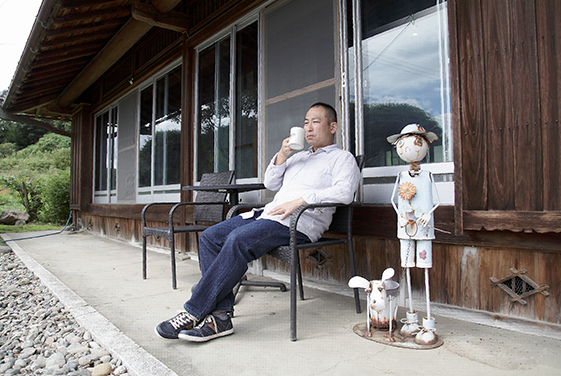
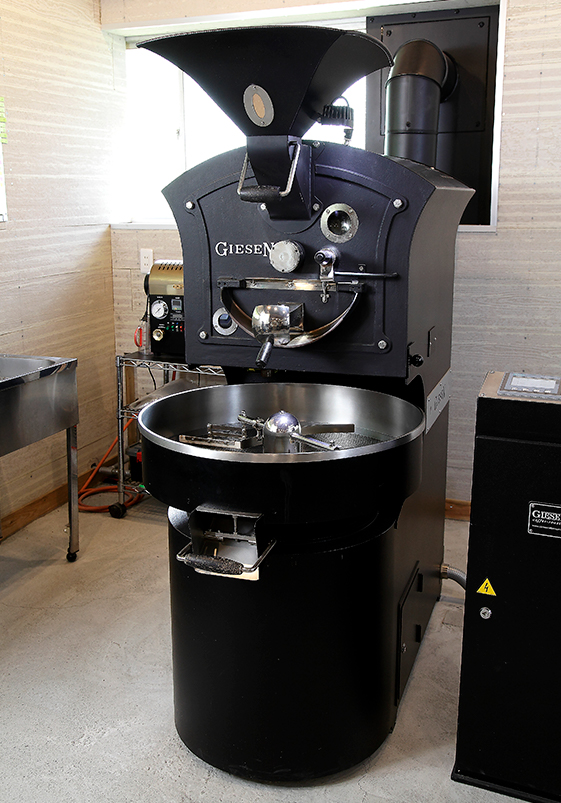
Poverty I experienced while traveling around the world
Sakata 's motivation for becoming a coffee roaster came from his travel experiences in his 20s. This was the time when the comedy duo Saruganseki was showing their world travel show and it was very popular. Sakata , who always loved to travel around the world, once he had saved up enough money he traveled to about 80 countries as a backpacker.
"I traveled to every continent except Antarctica, including Eurasia, Africa, Oceania, North America, and South America, without distinction between developed and developing countries. During my travels, I witnessed the reality of the world's poor.
In Cambodia, the moment I crossed the border I was surrounded by children asking for money. I also went to the slums in the Philippines, and in Africa I visited many countries, including Kenya, Tanzania, Rwanda, Ethiopia, and many others."
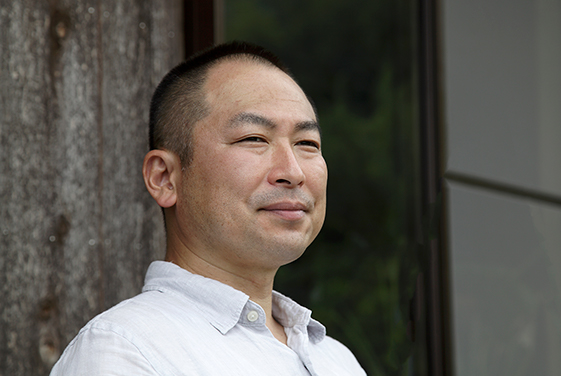
During his travels, he felt frustrated when he saw the poverty in the areas he visited and wanted to do something about it, but was unable to do anything. One day, while he was feeling this way, he came across a certain coffee.
"About 10 years ago, I came across Ethiopian Yirgacheffe Washed specialty coffee at a coffee shop in Tokyo."
The variety was a heirloom. The floral and citrus-like refreshing acidity and the flavor reminiscent of Earl Grey tea were a culture shock to Sakata . He had never thought coffee was delicious before, and was so impressed by the taste that he began researching specialty coffee, which led him to discover the potential of specialty coffee as a social business.
"I couldn't do anything in my 20s, but in the specialty coffee industry, even if it's difficult to save all coffee farmers, maybe we can help coffee farmers who have the terroir (the natural environment of the land, including the topography, soil, altitude, and climate) to produce delicious green beans, to some extent, to save them from poverty. I thought that if providing delicious coffee to consumers was a system that contributed to improving the lives of producers, even an individual like me could contribute."
Around this time, he began studying cupping, aiming to become a green bean buyer like Yoshiaki Kawashima, a pioneer in the field and a famous coffee hunter. However, if he didn't understand roasting, he wouldn't know whether the flavor was due to the green beans or the roasting. So he started roasting the coffee himself.
"I decided to start up a micro-roaster because I thought that if I were to run a home roasting business, which is downstream of the green bean buyers in the coffee value chain, I could accompany them on the purchases and improve my cupping skills."
Becoming Japan's Roasting Champion in Just Two and a Half Years
Since he started taking action, Sakata 's momentum has not stopped. In June 2017, he started a roastery as a roaster. He started a small shop called "KOTO COFFEE ROASTERS" with a rent of 50,000 yen, located a five-minute walk from his house. He continued to study roasting.
"I was very lucky. The roaster I introduced was a Giesen W6A, which is also used in the WCRC (World Coffee Roasting Championships). The Japanese champion at the time came to practice at my shop to get used to the roaster in preparation for the world championships."
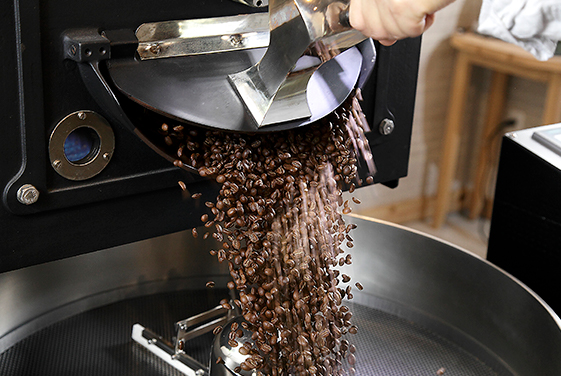
At the same time, I also participated in a study group held in Osaka that brought together some of Japan's top coffee roasters. Once a month, we would set a target set of beans and compete to see who could roast the most delicious coffee. During this meeting, I rapidly improved my skills.
And they won the JCRC 2019 competition. Just two years and two months after opening, they were crowned Japan's roasting champion.
Roasting that brings out the potential of ingredients
When I asked Sakata , "What do you think of roasting as a process that determines the taste of coffee?" he replied, "It's like cooking."
"In the old days, when transportation technology was not yet developed, French cuisine developed sauces and, to put it positively, combined various ingredients to create dishes with depth that seemed to play a harmonious role, but to put it negatively, they used sauces to mask the flavor. This is because ingredients shipped from within France had lost their freshness by the time they arrived in Paris.
On the other hand, Italian cuisine, which is surrounded by the sea on three sides and has an abundance of fresh ingredients, uses simple seasonings to bring out the best in the ingredients. I think both approaches are necessary for roasting.
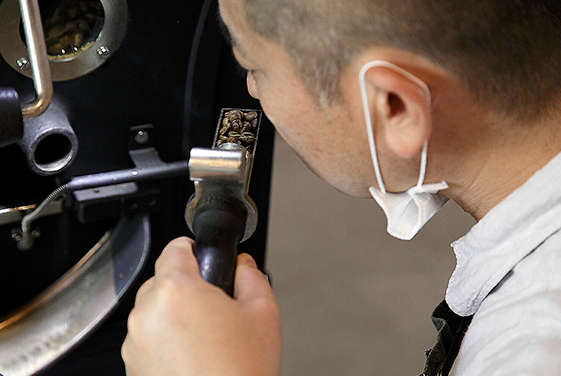
Ultimately, you can only handle truly delicious beans born from great terroir. However, even if the beans are from a low-altitude region and not such a great terroir, if they are properly cultivated, harvested, processed, sorted, and quality-controlled by human hands, the inclusion of defective beans can be minimized and they can become specialty coffee with a cupping score of over 80 points.
Such coffee may not have a vibrant flavor or bright acidity, but it does have a gentle acidity and sweetness with little off-flavors. If these less noticeable aspects can be brought out through roasting, it will sell better and the producing country will receive more money.
For top-of-the-line coffee, such as Cup of Excellence winning beans, I want to roast them lightly to bring out the flavor of the ingredients to the fullest, just like Italian cuisine. On the other hand, for beans on the border of specialty coffee, I roast them a little darker and caramelize them, just like classic French cuisine. I want to create a coffee with a good balance of sweetness, acidity, and bitterness by adding sweetness, or by blending various ingredients to make up for what is lacking, to create a delicious coffee with depth that seems to play a harmonious harmony."
In fact, the beans that Sakata sells in his shop are not all expensive. This is the pride of Sakata , who wanted to solve the world's poverty problem while traveling in his twenties.
Sakata 's skills and knowledge, which he has acquired to become a roasting champion, bring out the maximum potential of the raw beans, resulting in the creation of a superb cup of coffee.
